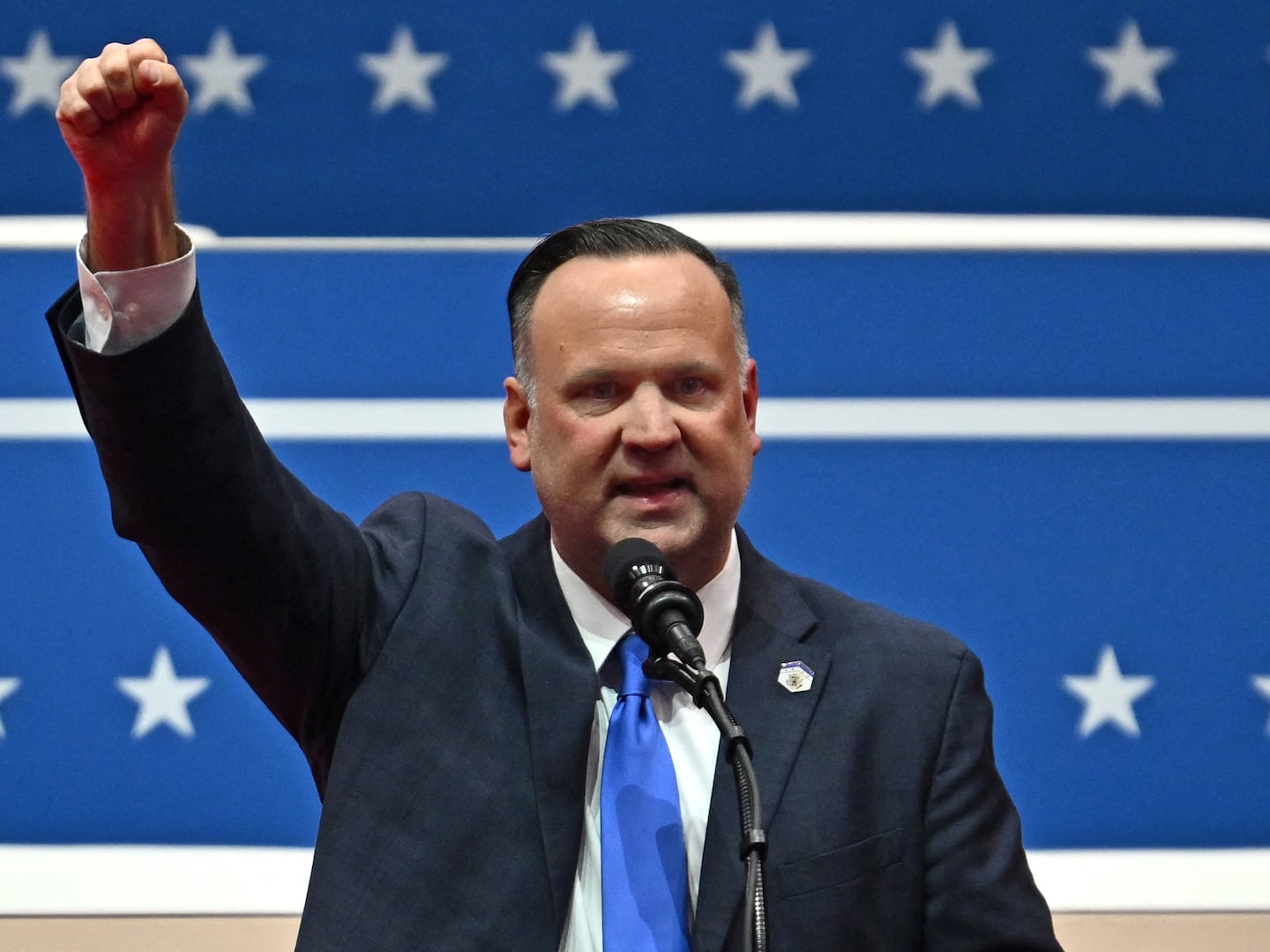Voters be crazy.
That’s at least the conclusion one might reasonably draw from Tuesday’s election results. After all, while voters largely chose to send Republicans to Congress and governor’s houses in a sweeping landslide nationwide, they simultaneously sided with Democrats on issue after issue in ballot measures. But the results make sense—when you look at how Republican candidates acted like Democrats on popular, populist issues.
For instance, in Arkansas, a projected 57 percent of voters backed Republican Tom Cotton for the Senate. Yet by an even wider margin—69 percent—Arkansas voters passed a measure that will increase the state’s minimum wage—a measure that Arkansas’ newly elected Republican Gov. Asa Hutchinson opposed.
Similarly, 51 percent of South Dakota voters chose Republican Mike Rounds in that state’s Senate race. Voters there also passed a hike in the state minimum wage, with 53 percent of the vote. South Dakota and Arkansas both voted Republican in the last two presidential elections, as did Nebraska, where voters also passed a minimum-wage measure Tuesday night—with 59 percent of the vote.
People in these states arguably took matters into their own hands and voted to increase state minimum wages because their elected leaders—specifically, the Republican ones—were refusing to do so legislatively at the state or federal level. And yet the same states help increase Republican obstructionism power in Washington.
In Colorado, voters struck down yet another attempt by conservative extremists to amend the state constitution to recognize “fetal personhood” and severely restrict the reproductive rights of women in the state. By a margin of 63 percent to 37 percent, Colorado voters rejected the “personhood” measure. Meanwhile, voters in Colorado also elected Republican Cory Gardner to the Senate, even though Gardner had backed similar personhood measures.
If you’re confused, you’re not the only one.
Then again, that may have been the GOP strategy in this election. For instance, although Democrat Mark Udall tried to make the campaign a referendum on Gardner’s anti-choice positions, Gardner effectively disavowed his previous stance on “personhood” and embraced access to over-the-counter birth control to try and look reasonable on women’s issues. It appears to have worked: According to exit polls, 16 percent of Colorado voters who feel abortion should be “always legal” and 42 percent of those who think it should be “mostly legal” backed Gardner.
And in Alaska, where pre-election polls showed voters are likely to pass a minimum-wage measure on the ballot, Republican Senate candidate Dan Sullivan eventually endorsed the measure after initially suggesting he opposed it. Sullivan also looks likely to win in Alaska.
In other words, there might not be a mystery here at all. Across the issues, there’s evidence to suggest that Republican candidates won in part by masquerading as moderates, embracing the sorts of Democratic positions—or at least rhetoric—that enjoy wide voter support, even in red states. Republican candidates in states like Georgia and Virginia lamented high poverty rates. Victorious Republican Gov. Nathan Deal boasted of his progress in reducing the number of incarcerated black men in Georgia. Cory Gardner and others hammered on stagnant wages for the middle class. Republican James Lankford, who won the race for the Senate in Oklahoma, began a debate with his opponent by railing against income inequality.
Republican Bill Cassidy, who heads to a run-off for the Senate against Mary Landrieu in Louisiana, also lamented on the campaign trail that “income inequality has increased.” Thom Tillis, the Republican victor in the North Carolina Senate race, hammered Democrat Kay Hagan for supporting a sales tax that “harmed the poor and working families more than anyone else.” The winner in the Illinois governor’s race, Republican Bruce Rauner, suggested that taxes should target businesses instead of “low-income working families.”
“You’d expect to hear that kind of talk from Democrats, or maybe socialists,” wrote Slate’s William Saletan. But no, it was Republicans who managed to pull off this stunning electoral jujitsu in contorting their rhetoric to be entirely unrecognizable from their actual conservative policies and beliefs.
Meanwhile Democrats, who should naturally have the upper hand in any honest fight for the increasingly populist American electorate, were too busy running away from President Obama to embrace the effective aspects of his agenda. As Andrew Sullivan wrote on Election Night, “If you wonder, as I do, why Democrats never actually defend their policies or even achievements in power, and run solely on some poll-tested social issues, then your bafflement will likely only increase tonight, as mine has.” The New Republic’s Alec MacGillis noted that in the three states that saw the biggest coverage gains under Obamacare—Kentucky, Arkansas and West Virginia—Democratic Senate candidates shied away from pointing that out. “And all lost badly,” MacGillis tweeted.
In other words, perhaps the greatest irony of this election is that Republicans ran as Democrats—and voters endorsed Democratic ideals both in voting for those masquerading Republicans, and in backing liberal ballot measures. For progressives, that—plus the fact that, thanks to these ballot measures, thousands of hard-working Americans are going to get a much needed basic raise—is about as silver as the lining on this election is going to get.






